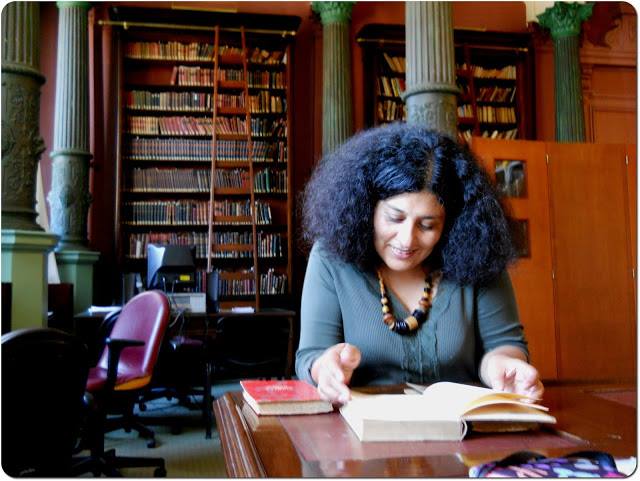22
An eye devised for night
spits out bright figures that dance in symmetry
/disorder
can’t reach the word for mulching the ground where
/we have lily dreams.
An eye devised for night
beats stealthily behind your ears,
proposes slow sentences interlacing daytime
/routines.
An eye devised for night
clothes you in the pelt of a lynx charging,
whose howls bruise the unmarkable,
who catches butterflies like words soaring on the
/wind.
22
Un ojo diseñado para la noche
escupe figuras brillantes que bailan en simétrico
/desorden,
no alcanza la palabra para abonar la tierra donde
/hemos soñado lirios.
Un ojo diseñado para la noche
late con sigilo detrás de tus orejas,
propone oraciones lentas que entrelazan las diurnas
/rutinas.
Un ojo diseñado para la noche
te pone la piel de lince que avanza frenético,
que aúlla magullando lo inmarcesible,
que atrapa mariposas como palabras caladas por el
/viento.
23
This thirst turns checkered over dog days,
dances to the rhythm of flies glistening above
/the table of afternoon napping.
At memory’s end,
I have the key to the desert.
A ritual’s machinery recurs in the afternoon’s
/whirring
opens in time like a mirror.
Anguished and tame is the afternoon’s melody:
making a nest to shelter our fears.
23
Esta sed se cuadricula en la canícula,
danza al ritmo de las moscas que brillan sobre
/la mesa de la siesta.
En el fondo del recuerdo,
tengo la llave del desierto.
La mecánica de un rito se repite en el zumbido
/de la tarde
que se abre como un espejo en el tiempo.
Angustiosa y doméstica es la melodía de la tarde:
diseñada con pequeñas madrigueras
para anidar nuestros miedos.
26
No, we’re not fire from a tide inhabited by voices.
Nor the quiet memory of a stone recording us
/in its blood.
A bird’s green song doesn’t come to brush against
/our eardrums.
No, we’re not the syllable occupying space in
/muteness.
Which bones instruct our shadow?
Sometimes, among the ruins,
we move luckily forward
ignoring our scar from angels in haste.
26
No, no somos el fuego de una marea habitada de voces.
Tampoco la memoria callada de la piedra nos registra
/en su sangre.
El verde canto de un pájaro no llega a rozarnos
/el tímpano.
No, no somos la sílaba que ocupa un espacio en
/la mudez.
¿Qué huesos edifican nuestra sombra?
A veces, entre las ruinas,
avanzamos dichosos
ignorando nuestro estigma de ángeles desalados.
translator’s note
Sharply wrought imagery and a gaze so intense as to be almost intimate—these are the forces that drive Paura Rodríguez Leytón’s Small Changes (Pequeñas mudanzas). The three untitled poems that appear in this issue exemplify Rodríguez Leytón’s world building, the dream-landscape perceived—and rendered—by “an eye devised for night” (“Un ojo deseñado para la noche.”) In translating these poems, I found I had to lean back fully into that dream-landscape, with its “thirst [turning] checkered over dog days” and its “lily dreams.” As figured as they are, the poems resist—they never settle for—conceit. In Rodríguez Leyton’s work, the image is everything; even, in the philosophical “No, we’re not fire from a tide inhabited by voices” (26), where ontological desire, the need to understand our essential nature is rendered largely through its negation: “we’re not fire . . . nor the quiet memory of a stone. . . No, we’re not the syllable occupying space in / muteness.” What a pleasure it has been to enter this world for a while to translate these poems.

Janet McAdams is the author of the poetry collections, The Island of Lost Luggage, which won the American Book Award, and Feral. A chapbook of speculative prose poems, Seven Boxes for the Country After, was published by Kent State Press in 2016. Her poems have appeared recently in Poetry, Spoon River Poetry Review, Southern Humanities Review, Shenandoah, and the anthology New Poets from Native Nations.

Paura Rodríguez Leytón (La Paz, 1973) is a poet and journalist. Her books include Del Árbol y la arcilla azul azul [From the Tree to the Blue Blue Clay] (Argentina, 1989); Ritos de viaje [Travel Rites] (La Paz, 2004; Caracas, 2007, ed. digital); Pez de Piedra [Stonefish] (La Paz, 2007) and Pequeñas mudanzas [Small Changes] (Colombia, 2017), which was the runner up for the 2017 Pilar Fernández Labrador International Poetry Prize (Premio Internacional de Poesía “Pilar Fernández Labrador” 2017).

 BACK TO ISSUE
BACK TO ISSUE